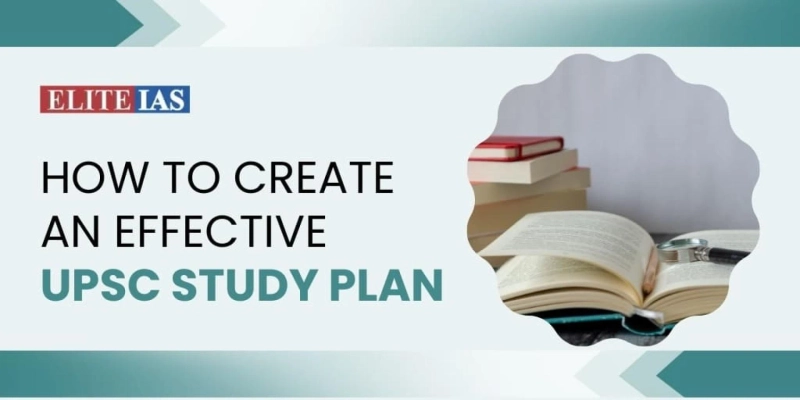Crafting a focused study plan is key to cracking the UPSC exam, but creating a strategy amidst the vast syllabus can seem daunting. Where do you start? What study techniques align best with the exam pattern and your learning style? In this post, I\'ll share insider tips from UPSC toppers on structuring your schedule, conquering the syllabus, and integrating revision seamlessly. You\'ll learn proven approaches for time management, priority setting, and building consistency into your UPSC prep. Whether starting from scratch or optimizing your existing routine, this post will guide you to creating a winning study plan tailored to your strengths and constraints. I\'ll cover daily scheduling, syllabus breakdowns, revision techniques, and more. By the end, you\'ll have a clear roadmap to efficient UPSC prep and your dream of becoming an IAS officer. Let\'s dive into smart exam preparation and take the first step towards UPSC success!
Why Understand the UPSC Exam First?
Before you embark on your UPSC preparation journey, it\'s crucial to understand the exam\'s structure and requirements. The Preliminary Examination, the Main Examination, and the Interview are the three parts of the UPSC exam. Each stage has its own unique challenges and demands. The Preliminary Examination tests your general knowledge and aptitude, while the Main Examination assesses your in-depth knowledge and analytical skills. The Interview evaluates your personality and suitability for a career in civil services.
Setting Clear Goals and Objectives
A successful UPSC study plan begins with setting clear and achievable goals. Define your long-term and short-term objectives. Long-term goals might include cracking the UPSC exam on your first attempt, while short-term goals could involve covering specific subjects within a set timeframe. Having well-defined goals will keep you motivated and focused throughout your preparation.
Time Management
Time is your most valuable asset when preparing for UPSC. Create a realistic timetable that allocates sufficient time to each subject and revision. Be mindful of your strengths and weaknesses and adjust your study plan accordingly. Remember that consistency is more important than cramming.
Subject-wise Planning
A wide range of topics are covered by the extensive UPSC syllabus. Divide your study plan into subject-wise segments. Allocate dedicated time for each subject based on its weightage in the exam. Make sure you systematically go through the entire curriculum.
Resource Selection
Selecting the right study materials and resources is paramount. Consult recommended UPSC books, online courses, and coaching materials. Don\'t rely on a single source; diversify your resources to gain a comprehensive understanding of each subject.
Consistency Is Key
Consistency is the secret sauce of UPSC preparation. Maintain your study schedule, even when your motivation wanes. Consistent daily efforts will lead to significant progress over time.
Revision Strategy
Regular revision is essential to reinforce your learning. Create a revision timetable that allows you to revisit previously covered topics. Utilize revision techniques like making concise notes and flashcards to aid your memory.
Staying Motivated
The UPSC journey can be challenging, and there may be moments of self-doubt. Surround yourself with a supportive group of peers and mentors. Keep reminding yourself of your goals and the impact a civil services career can have on society.
Frequently Asked Questions (FAQs)
Q.1: How long does it take to prepare for the UPSC exam?
Ans: The duration of UPSC preparation varies from person to person. On average, a dedicated aspirant should plan for approximately 12 to 18 months of preparation.
Q.2: Can I prepare for UPSC while working a full-time job?
Ans: Yes, many aspirants successfully prepare for UPSC while working full-time. Effective time management and a well-structured study plan are key to balancing both commitments.
Q.3: How can I sharpen my answer-writing abilities?
Ans: Regular practice is essential. Start answering previous years\' question papers, get feedback from mentors, or join answer writing programs.
Q.4: Is coaching necessary for UPSC preparation?
While coaching can be beneficial, it\'s not mandatory. Many aspirants have cleared the UPSC without coaching. It ultimately depends on your individual learning style and resources.
Conclusion
Creating an effective UPSC study plan is the first step toward achieving your dream of becoming a civil servant. Remember that there is no one-size-fits-all approach, and you must customize your plan to suit your strengths and weaknesses. Stay focused, stay consistent, and stay motivated throughout your UPSC preparation journey, and success will follow. Best of luck!
Accelerate Your UPSC Prep with the Best UPSC Coaching In Delhi
Crafting an efficient study plan on your own can be challenging. To fast-track your UPSC success, leverage the proven strategies from Elite IAS Academy - the Best UPSC Coaching In Delhi. Their expert faculty and structured courses are designed to help you conquer the syllabus, master time management, and develop top-notch writing skills. With personalized mentoring and access to unparalleled resources, you\'ll be exam-ready in no time. Unlock your potential and realize your UPSC dreams with Elite IAS Academy, visit https://www.eliteias.in/ or call +91-7065202020 to enroll now!



